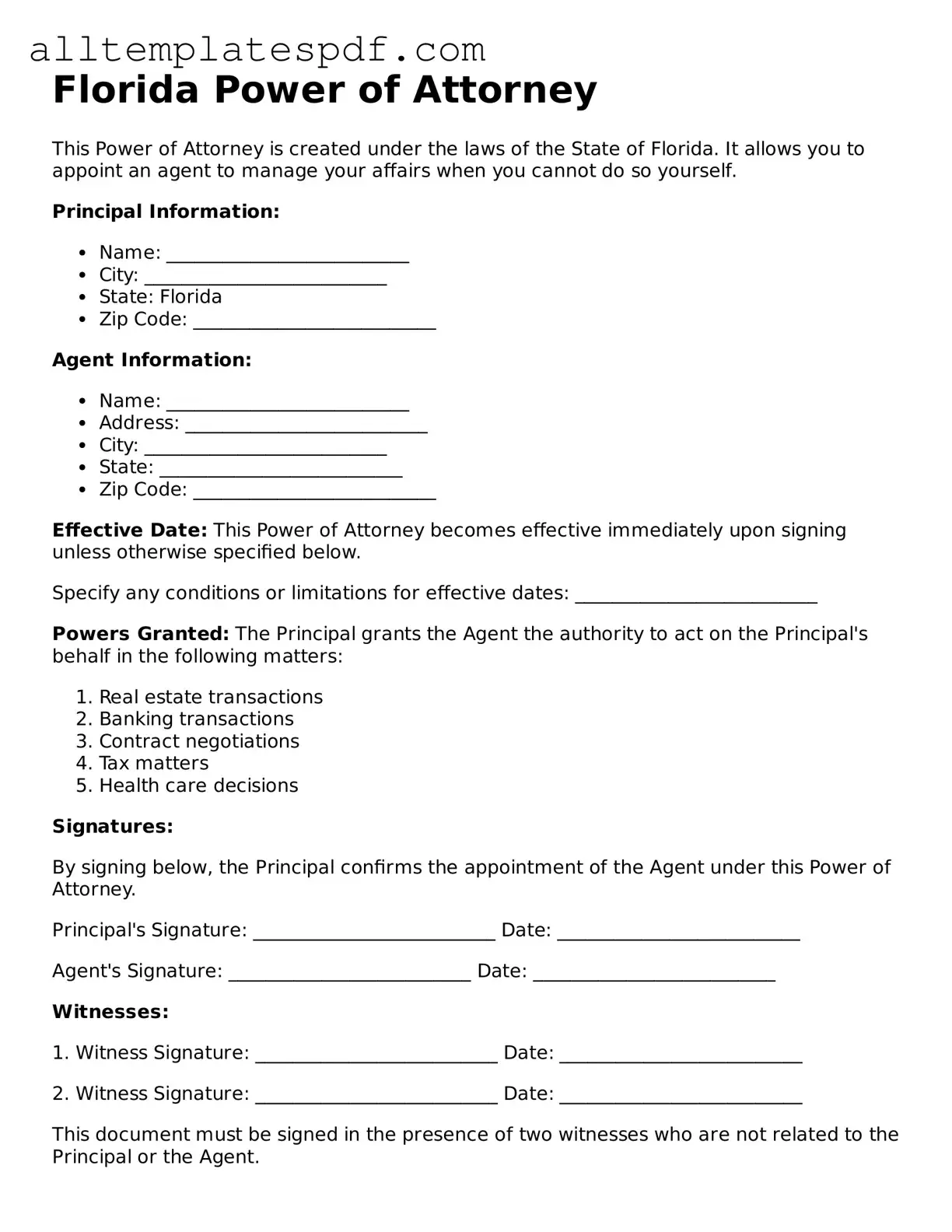Filling out a Florida Power of Attorney form can be a straightforward process, but many individuals make common mistakes that can lead to complications down the line. One frequent error is not specifying the powers granted to the agent. Without clear instructions, the agent may not have the authority to act on your behalf in critical situations.
Another mistake often encountered is failing to date the document. A Power of Attorney should include a date to establish when it becomes effective. If the form is not dated, there could be confusion about its validity, which may lead to disputes or issues with third parties.
Some individuals overlook the importance of having witnesses. In Florida, a Power of Attorney must be signed in the presence of two witnesses. Neglecting this requirement can render the document invalid, which defeats the purpose of having it in the first place.
Additionally, people sometimes forget to initial or sign every page of the document. While this may seem like a minor detail, it can be crucial. Missing signatures could raise questions about the authenticity of the document, causing delays or complications when it is needed.
Another common oversight is not updating the Power of Attorney when circumstances change. Life events such as marriage, divorce, or the birth of a child may necessitate revisions to the document. Failing to make these updates can lead to confusion or disputes regarding the authority of the agent.
Some individuals may also assume that a general Power of Attorney covers all situations. However, specific powers may need to be outlined for certain actions, such as real estate transactions or medical decisions. Without these specifics, the agent may not have the necessary authority to act.
People often forget to discuss their wishes with the chosen agent. It’s essential for the agent to understand your preferences and intentions. A lack of communication can lead to actions that do not align with your desires, potentially causing distress for both you and your agent.
In some cases, individuals use outdated forms. Laws and requirements can change, and using an old version of the Power of Attorney form may not comply with current regulations. Always ensure you are using the most recent version of the form to avoid any legal issues.
Lastly, many people fail to store the Power of Attorney document in a safe yet accessible location. It’s important that trusted family members or advisors know where to find the document when it is needed. Poor storage can lead to delays in critical situations when timely action is essential.

